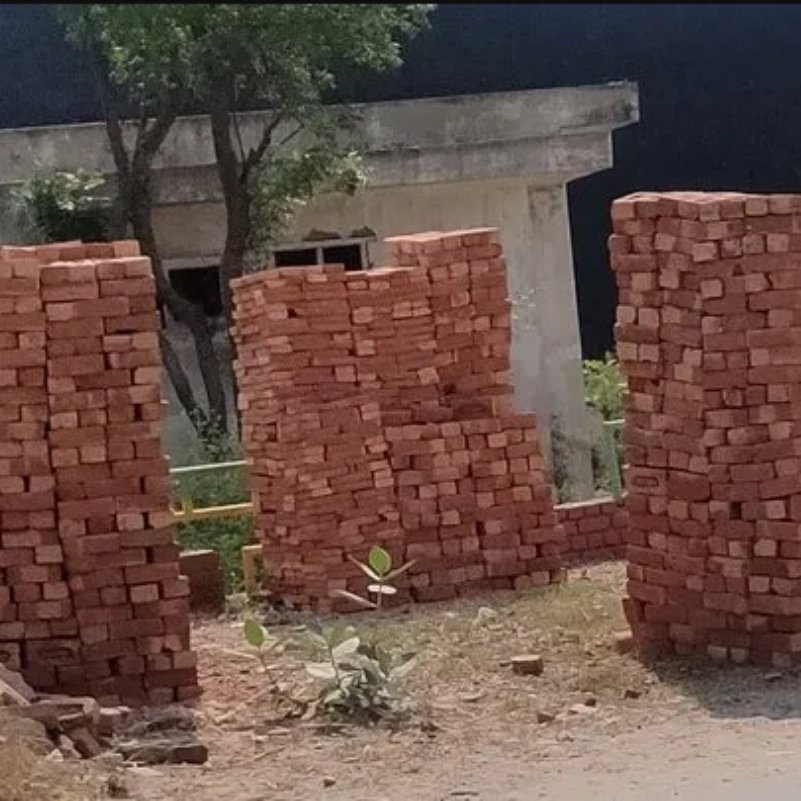Types of Bricks:
There are several types of bricks available in Pakistan, including:
- Traditional Bricks: These are the most commonly used type of brick in Pakistan, made from clay or soil and baked in a kiln. They are available in different sizes and shapes, such as rectangular or square.
- Concrete Bricks: These are made from cement, sand, and water and are available in different sizes and shapes. They are a popular alternative to traditional bricks, as they are durable and require less maintenance.
- Fly Ash Bricks: These are made from a mixture of fly ash, cement, sand, and water and are an eco-friendly alternative to traditional bricks.
The current brick rate in Pakistan varies depending on the type, quality, and location. Here are the current rates of bricks in Pakistan:
- Traditional Bricks: The rates of traditional bricks range from PKR 7 to PKR 14 per piece, depending on the quality and location.
- Concrete Bricks: The rates of concrete bricks range from PKR 15 to PKR 25 per piece, depending on the quality and location.
- Fly Ash Bricks: The rates of fly ash bricks range from PKR 10 to PKR 20 per piece, depending on the quality and location.
The bricks rate in Pakistan is influenced by several factors, including:
- Quality: The quality of the bricks affects their rates. High-quality bricks, such as those with a uniform shape and size, are generally more expensive than low-quality bricks.
- Location: The rates of bricks vary depending on the location, as transportation costs are added to the price.
- Demand and Supply: The rates of bricks are also influenced by the demand and supply of the market. If the demand is high and the supply is low, the prices may increase.
- Construction Trends: The prices of bricks may also be influenced by construction trends, such as the popularity of certain types of bricks or designs.
Bricks quality in Pakistan
The quality of bricks in Pakistan can vary depending on several factors, including the raw materials used, manufacturing process, and environmental conditions. Here is a detailed article on the quality of bricks in Pakistan:
Raw Materials Used:
The quality of bricks in Pakistan depends largely on the raw materials used in their production. Traditional bricks are made from clay or soil, which must be of good quality to produce durable bricks. The clay or soil should be free from impurities, such as stones or debris, which can weaken the structure of the bricks. Concrete and fly ash bricks are made from cement, sand, and other aggregates, and the quality of these materials can also affect the quality of the bricks.
Manufacturing Process:
The manufacturing process also plays a crucial role in determining the quality of bricks in Pakistan. The bricks should be properly moulded and baked in a kiln to ensure they are uniform in shape and size and have consistent strength. If the bricks are not properly dried and baked, they may be prone to cracking or crumbling, compromising their quality.
Environmental Conditions:
The environmental conditions in which the bricks are produced and stored can also affect their quality. Bricks that are exposed to excessive moisture or temperature fluctuations may be more prone to damage or decay over time. It is important to store the bricks in a dry and well-ventilated area to prevent moisture buildup and ensure their longevity.
Quality Standards:
In Pakistan, certain quality standards are set by regulatory bodies such as the Pakistan Standards and Quality Control Authority (PSQCA) for building materials, including bricks. The PSQCA specifies the minimum requirements for the quality of bricks, including their size, shape, strength, and durability. It is important to ensure that the bricks used in construction projects meet these quality standards to ensure the safety and longevity of the building.
The type of bricks that are good for a house depends on several factors, including location, climate, and personal preference. Here are some types of bricks that are commonly used for building houses:
- Traditional Bricks: Traditional bricks, made from clay or soil, are a popular choice for building houses in Pakistan. They are durable, provide good insulation, and have a natural look that blends well with the surrounding environment. Traditional bricks come in different sizes and shapes and are available at a lower price than other bricks.
- Concrete Bricks: Concrete bricks are made from cement, sand, and water and are a popular alternative to traditional bricks. They are durable, fire-resistant, and provide good insulation. Concrete bricks come in different sizes and shapes and are available in various colours and finish to match the design of the house.
- Fly Ash Bricks: Fly ash bricks are made from a mixture of fly ash, cement, sand, and water and are an eco-friendly alternative to traditional bricks. They are lightweight, have good insulation properties, and resist fire and pests. Fly ash bricks come in different sizes and shapes and are available at a reasonable price compared to other types of bricks.
In conclusion, the rates of bricks in Pakistan vary depending on the type, quality, and location. Traditional bricks are the most commonly used type of brick in Pakistan and are available at a lower price than concrete and fly ash bricks. Several factors, including quality, location, demand and supply, and construction trends, influence the rates of bricks. It is important to consider these factors when choosing the type of brick for a construction project. Read More

